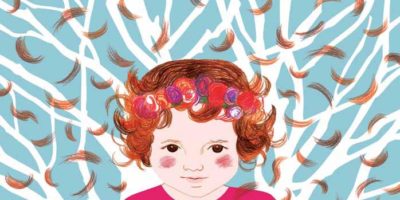Memory, History, Siblings
Rachel Gordan speaks with author Dara Horn
dh: When I was a child I had a fantasy of recording everything, of writing everything down so that nothing could ever be lost. I still keep journals and notebooks. But in recent years, social media has made my childhood dream come true — and turned it into a nightmare. Watching everyone archiving their lunch online for the past five years has made me think more clearly about the distinction between memory and history.
I feel sorry for people younger than me (I’m 36), because they will never have a chance to meet a stranger. Everything they do will already be there for the world to see, and they won’t have that chance to reinvent themselves by telling a new story about their past that suits their present needs. Of course, this is only an exponential updating of an ancient problem. In Plato’s Phaedrus, Socrates complains about how the new technology — writing — is destroying memory, because now that people can just write things down, who will memorize the epics of Homer? He was right. Nobody memorizes Homer anymore, or their best friend’s phone number either.
Technology always changes the way we consider the past. But the past isn’t a story. It’s a sequence of events that, once it’s gone, can’t be objectively accessed and can only be retold, in countless ways — and the way we choose to tell that story becomes our identity. There’s a double helix of free will and fate that defines our lives — the circumstances we find ourselves in, and how we decide to remember those experiences.
rg: Your novel A Guide for the Perplexed focuses on siblings—a relationship that often gets overlooked in the American Jewish community, where concerns about “continuity” lead to a preoccupation with the relationship between parents and children, and between grandparents and grandchildren. Your novel makes us think about siblings — the relationship about which there is least pressure to take responsibility. “Am I my brother’s keeper?” The answer we usually come up with is no. Yet siblings may be the best family metaphor for an individual’s relationship with her peers and her community.
Our siblings are fellow travelers in life, keepers of the same memories. We grow up with our siblings, but we often expect to make different choices and take divergent paths. As adults, the “rules” about how to live with and love our brothers and sisters seem unclear. Jealousies and resentments from the past have the potential to weigh down these relationships, as your book beautifully explores. What sparked your interest in siblings and memory?
dh: That double helix of fate and free will I talked about earlier exists in microcosmic form for siblings who grew up together, in the form of the nature-versus-nurture debate. These are people who were raised in the same circumstances, but often you’d never know it, and their memories of their supposedly shared past are often very different. I grew up with two sisters and a brother, and the four of us are still very close as adults, but I appreciate how unusual that is. I also have four small children of my own, and I already see how they have their own world within my home that in large part doesn’t include me.
The contemporary story in my novel is a rewriting of the Joseph story from Genesis, retold in contemporary times, and with women instead of men. The Joseph story is a perfect encapsulation of this question of destiny and free will. Joseph can see the future through dreams, but his story is not otherwise supernatural — it appears to take place entirely through human choices (his brothers sell him into slavery, his master’s wife frames him for assault, etc.). Yet at the end, when his brothers reunite with him in Egypt and he reveals himself to them, he tells them, “Don’t be angry at yourselves that you sold me to this place, because it was to save life that God sent me ahead of you” — turning his brother’s crimes into a benevolent act of God! To me, this is an astonishing revision of history. But it’s also illustrative of the kind of selective memory that’s absolutely necessary in families and in all relationships. Forgiveness is always an act of fiction, and there is no more gracious act than creating that story.
From “Technology, Memory, and Jewish History,” ReligionandPolitics.org, February 25, 2014.




